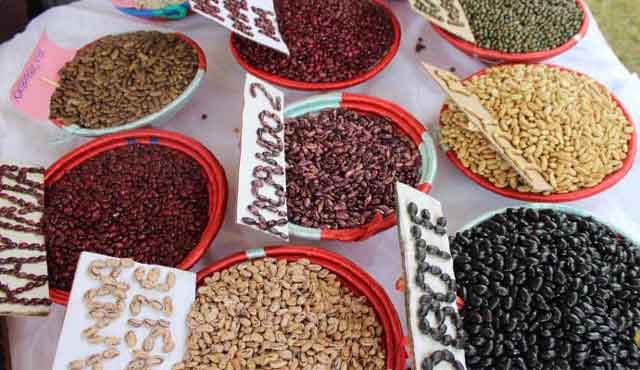
Kampala, Uganda | THE INDEPENDENT | Food and environment activists say you need to urgently find ways of avoiding food loss and waste or risk financial and environment losses.
The Minister of Agriculture, Vincent Sempijja and Food Agricultural Organization Country representative, Antonio Querido say it is high time that you rethink how to avoid such losses at harvest or during marketing of you food.
Their call comes as Uganda marks the first International Day of Awareness of Food Loss and Waste (DAFLW).The United Nations General Assembly recently designated 29th September as the International Day of Awareness of Food Waste and loss.
The day is aimed at raising awareness against food loss and wastage. Agriculture Minister, Vincent Sempijja told journalists in Kampala that in Uganda food loss mainly occurs during harvest and post-harvest handling. He said food loss and waste also happens in in homes especially when cooked or uncooked food is thrown to the dust bins.
“The government of Uganda has put in place enabling policy frameworks for food loss reduction and these include the constitution of republic of Uganda objective 12 (twelve) which compels the state to take appropriate steps to grow and store adequate food, vision 2040 which underscores the need to reduce food loss and wastage and improve food safety among others” said Sempijja
He also says that food loss and waste is one of the biggest challenges, for growth of the agriculture sector because it threatens household incomes, food security and nutrition.
According to Sempijja, over 17% of 2.8 million tons of maize produced in Uganda annually is lost or wasted during harvest or post handling services. He said it is estimated 12.4 % of the 214,000 tons of millet is lost or wasted in Uganda annually.
Food and Agricultural Organisation Country Representative, Antonio Querido says it is important that people understand that food loss and waste affects the economy of the country and individuals.
Querido explained that in case of Uganda like other countries, when food is lost or wasted, all the resources that were used to produce I like t, water, land, energy, labor and capital goes to waste.
He explained that in case of wastage in homes, poor disposal of food in landscapes lead to greenhouse emission which contribute to climate change.
He said in the COVID 19 pandemic in Uganda and the rest world brought to the fore front about the need to reform and balance the way our food is produced and consumed. Globally, it is estimated that 14% of the food produced is lost between the harvest and retail leading to 40 million dollars lost by smallholder farmers.
A study conducted by Food Right Alliance(FRA) and Twaweza among others urged for the need to address the food systems in the country. Food Rights Alliance Executive director, Agnes Kirabo revealed that hat if a farmer in Uganda produces 10 kilograms of maize, that farmer loses about 1.2 Kilograms on the farm.
Kirabo says food waste constitutes a huge proportion of garbage collected or disposed in Kampala on a daily basis. She added that if food that goes to waste was saved, it would help many people who are suffering in the neighborhoods.
She appeals to Ugandans that as they are trying to fight the Covid-19 pandemic, they should ensure that the available food should be put in right use which will help to them to improve the immunity to fight the virus
“Take responsibility and personal actions as an individual. Consume responsibly and don’t serve a full plate of food which will be left to waste yet others are missing” said Kirabo
The campaign against food loss and waste is part of the sustainable development goal target 12.3 which aims to halve per capita food waste at the retail and consumer level by 2030, and reduce food losses along the food production and supply chains.
Between March and June when the total lockdown was partially lifted, dairy and poultry farmers lost market for their products because hotels, restaurants and food service points were no longer buying eggs, milk and beef among other foods.
Banana and other fresh food producers also registered a high drop in demand leading to low prices. According to the Food and Agricultural Organization, food is lost or wasted on-farm through inadequate harvesting time, climatic conditions, practices applied at harvest and handling, and challenges in marketing produce.
The other loss occurs in storage where significant losses are caused by inadequate storage, as well as decisions made at earlier stages of the supply chain that cause products to have a shorter shelf life. In Uganda, the loss in transit is equally big though usually ignored.
Studies have called for good infrastructure and efficient trade logistics so as to prevent food loss.They have also suggested the need to improve processing and packaging so as top reserve foods, and losses often caused by inadequate facilities, technical malfunction, or human error.
The causes of food waste at the retail level are linked to limited shelf life, the need for food products to meet aesthetic standards in terms of color, shape, and size, and variability in demand. While at home, don’t serve yourself food that you cannot finish eating.
Food buyers are advised to adequately plan to avoid excess buying normally influenced by over-large portioning and package sizes, confusion over labels and poor in-home storage.
********
URN
 The Independent Uganda: You get the Truth we Pay the Price
The Independent Uganda: You get the Truth we Pay the Price


